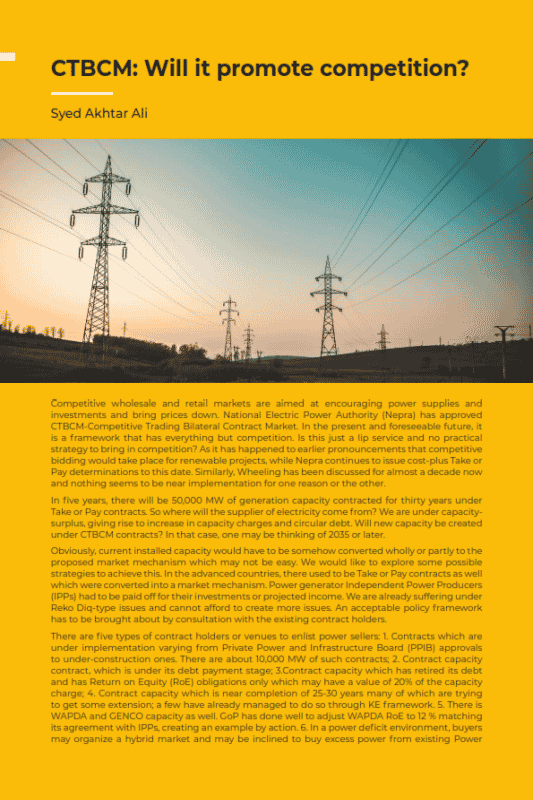CTBCM: Will it promote competition?
Competitive wholesale and retail markets are aimed at encouraging power supplies and investments and bring prices down. National Electric Power Authority (Nepra) has approved CTBCM-Competitive Trading Bilateral Contract Market. In the present and foreseeable future, it is a framework that has everything but competition. Is this just a lip service and no practical strategy to bring in competition? As it has happened to earlier pronouncements that competitive bidding would take place for renewable projects, while Nepra continues to issue cost-plus Take or Pay determinations to this date. Similarly, Wheeling has been discussed for almost a decade now and nothing seems to be near implementation for one reason or the other. In five years, there will be 50,000 MW of generation capacity contracted for thirty years under Take or Pay contracts. So where will the supplier of electricity come from? We are under capacitysurplus, giving rise to increase in capacity charges and circular debt. Will new capacity be created under CTBCM contracts? In that case, one may be thinking of 2035 or later. Obviously, current installed capacity would have to be somehow converted wholly or partly to the proposed market mechanism which may not be easy. We would like to explore some possible strategies to achieve this. In the advanced countries, there used to be Take or Pay contracts as well which were converted into a market mechanism. Power generator Independent Power Producers (IPPs) had to be paid off for their investments or projected income. We are already suffering under Reko Diq-type issues and cannot afford to create more issues. An acceptable policy framework has to be brought about by consultation with the existing contract holders.




